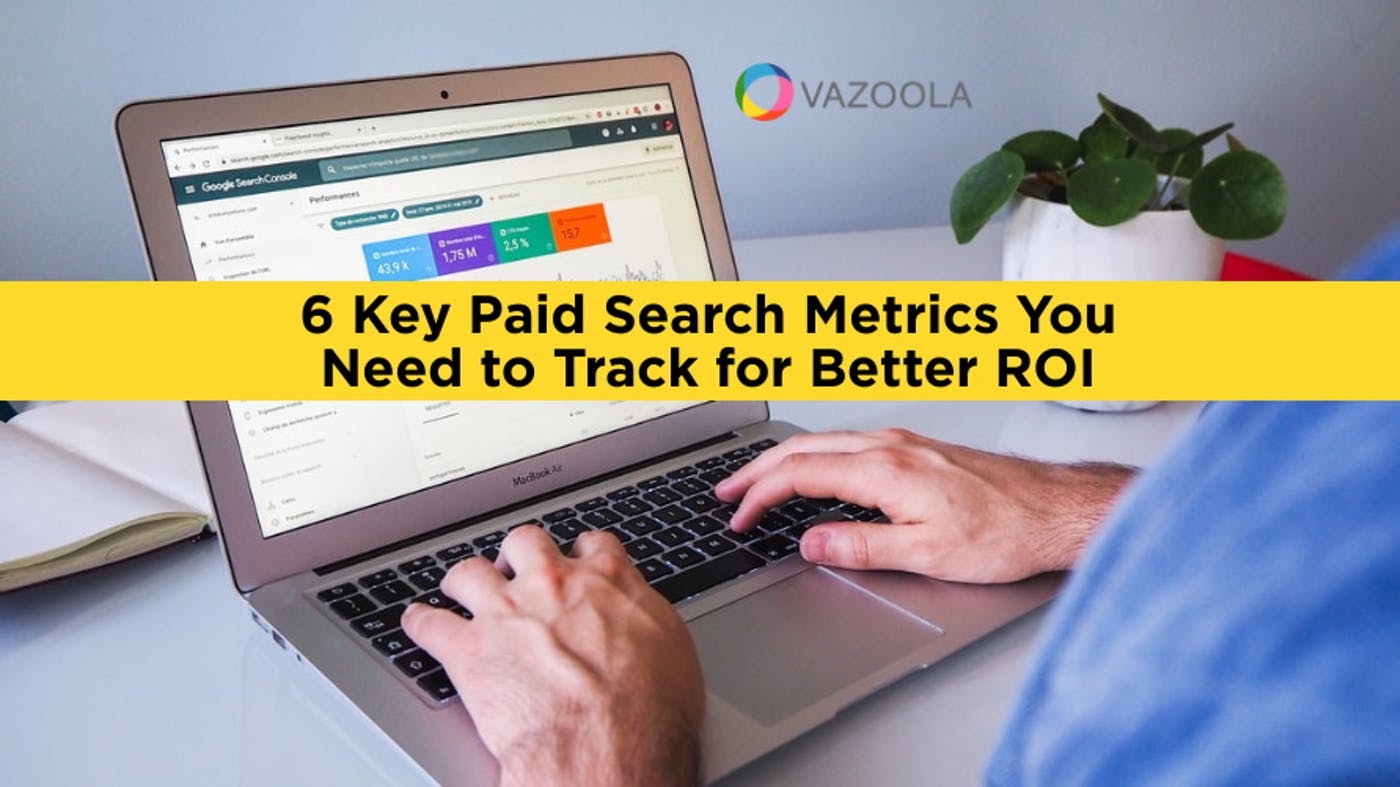6 Key Paid Search Metrics You Need to Track for Better ROI
Aug 24, 2020
Written by Casey Bjorkdahl

Casey Bjorkdahl is one of the pioneering thought leaders in the SEO community. In 2010, Casey co-founded Vazoola after working for a Digital Marketing Agency for five years in New York City. Vazoola is now one of the fastest growing and most widely recognized SEO marketing firms in the country.

Digital advertisers today approach marketing with a keen eye for measuring results. The value of their promotions is based on the benefits they deliver to their businesses, called return on investment, or ROI.
Paid search metrics refers to information about paid advertising, such as Google Ads, one of the most popular platforms for purchased digital promotions.
To get the most out of your tracking analytics, however, you need to know the most critical measurements. Below are six vital paid search metrics you should track for improved ROI.
1. Site Traffic
Total site traffic ranks first among the paid search metrics that matter when tabulating marketing ROI.
This is a measure of the entire number of unique visitors your website receives. It includes organic visitors as well as those who come through paid advertising, email campaigns, and other promotions such as:
- People who clicked on your backlinks on other websites
- People who find you from social media platforms
- People who visit your site directly from outside promptings such as bookmarks in their browsers
Tracking this metric gives you a telling indication of how people are finding your website and helps you plan where to allocate your marketing dollars to get the best results.
2. Clicks
Checking your click-through rate tells you how many people took specific actions based on your internet advertising.
This measurement helps you calculate and comprehend the effectiveness of your marketing message. Clicks are not the same as impressions.
When it comes to impressions vs. clicks, tracking impressions is vaguer. This metric does not tell you if people took a specific action based upon your promotions or even if they saw your ad.
However, tracking impressions helps you estimate how well your brand is known, as it indicates advert density online.
3. Customer Acquisition Cost (CAC)
This is an important Key Performance Indicator, or KPI, to follow. It is a number that tells you how much it costs to turn a potential customer into a paying customer.
Measurements for CAC include all other aspects of your digital marketing campaign, including research and creation.
Among all metrics, CAC is a foundation figure for determining ROI on your current approach to digital promotion.
It will let you know if you are on the right track or if you need to change certain aspects or scrap everything and start fresh with a new strategy.
4. Mobile Traffic Conversions
People using mobile devices perform more digital searches and do more shopping than those on PCs or laptops, according to one study.
Any discussion of important digital search metrics should include mobile users. This has three important implications for all businesses who advertise digitally:
- To attract the broad demographic of mobile users, make sure your site is optimized for mobile.
- The number of visitors to your site from mobile devices is vital for determining overall brand awareness as well as your target audience.
- Marketing for mobile requires specialized strategies.
Failing to take this aspect of online marketing into account means you are missing out on the most significant digital promotional demographic today.
5. Bounce Rate
Among digital marketing metrics, the bounce rate is one of the best indicators of two important details.
It includes the quality of your website landing page and how well it matches your metadata, such as the meta description and title tag that appear in searches.
The bounce rate measures the percentage or number of visitors who visit your landing page and quickly leave without performing any further actions.
If this is a problem for your website, work to reduce your bounce rate right away.
6. Lifetime Value
Information about lifetime value for your site tells you how various critical users are to your business based on the entirety of their involvement with your website.
The term “value” refers to the importance of the ways visitors interacted with your site, such as making purchases.
This metric is essential for assessing digital ROI because it allows you to track long-term results. For example, Lifetime Value lets you compare the value of users who visit your site from paid advertising with those who come to it from social media or email campaigns.
The Right Figures
Paid search metrics are vital for helping you analyze the performance of your digital promotions as well as your overall tactics.
Focus on the most significant figures without being distracted by less critical metrics.
When you know what strategies give you the best ROI, you can concentrate your efforts to attract more interested users who may well become long-term customers.

